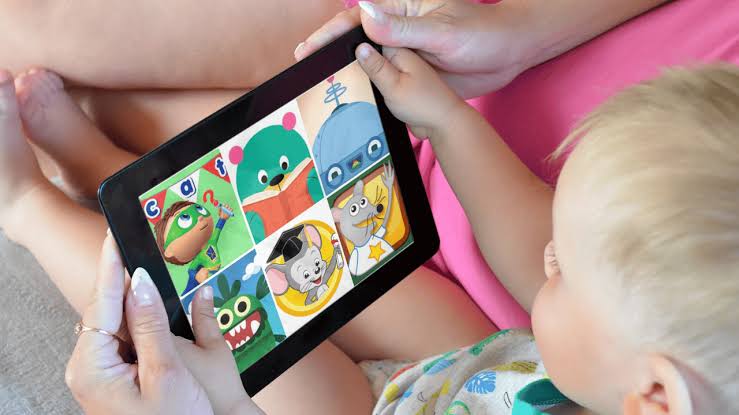
Apps That Help You Learn Anything with AI (Design, Music, Coding)
AI-powered learning apps revolutionize how we acquire skills by offering personalized, adaptive, and interactive experiences. Whether mastering design, music, or coding, these apps provide instant feedback, tailored lessons, and motivation tools to enhance learning efficiency. From beginner-friendly interfaces to professional-level content, AI makes skill development more accessible, engaging, and effective, helping learners worldwide reach their goals faster in today’s rapidly evolving creativ
✨ Raghav Jain

Introduction
In today’s digital era, learning new skills has never been easier or more accessible. Thanks to Artificial Intelligence (AI), personalized learning apps are transforming the way we acquire knowledge—whether it’s mastering design, composing music, or coding. AI-powered apps tailor lessons to your pace, style, and needs, making education smarter and more effective.
This article explores some of the best AI-driven apps that help you learn virtually anything—focusing on design, music, and coding. We’ll dive into how AI enhances learning, top apps in each category, daily practices to maximize your growth, and common myths around AI learning. The emergence of Artificial Intelligence (AI) has revolutionized numerous industries, and education is no exception, particularly in traditionally creative and technical fields like design, music, and coding. AI-powered learning apps are transforming how individuals acquire and hone skills in these domains, moving beyond static tutorials to offer dynamic, personalized, and interactive learning experiences. These applications leverage various AI technologies, including machine learning, natural language processing, and generative AI, to provide adaptive feedback, automate tedious tasks, and even generate creative content, thereby accelerating the learning process and making complex subjects more accessible to a wider audience.
In the realm of design, AI learning apps are democratizing creativity, enabling users with varying levels of experience to produce professional-quality visuals. Tools like Canva's Magic Design, Uizard, and Designs.ai integrate AI to assist with everything from brainstorming initial concepts to generating complete mockups and layouts. For instance, Uizard allows users to convert hand-drawn sketches or text prompts into editable UI designs, significantly reducing the initial friction of a blank canvas. AI can suggest color palettes (e.g., Khroma), recommend font pairings, and even automate the arrangement of elements, offering instant visual feedback and guiding users toward aesthetically pleasing outcomes. This is particularly beneficial for aspiring designers who might struggle with foundational principles, as the AI can provide real-time corrections and suggestions, essentially acting as a personal design mentor. Beyond just creation, AI also aids in learning by analyzing user designs, identifying common pitfalls, and offering targeted advice for improvement, helping learners grasp design principles faster and more intuitively. For professional designers, AI tools can automate repetitive tasks like resizing assets or generating variations, freeing up time for more creative and strategic work.
For music, AI learning apps are transforming how individuals compose, produce, and even learn to play instruments. Generative AI music tools like Suno AI, Udio, and Mubert can create original musical pieces based on text prompts, allowing users to experiment with different genres, moods, and instruments without needing extensive theoretical knowledge or instrumental proficiency. This opens up entirely new avenues for creative expression and experimentation, enabling learners to understand musical structures and arrangements by interacting with AI-generated examples. Beyond generation, AI-powered apps also assist with learning music theory and instrumental skills. Apps like HookPad Aria can generate MIDI compositions based on user input, helping aspiring composers explore harmonic progressions and melodies. For instrumentalists, AI applications can analyze a player's performance, providing instant feedback on pitch, rhythm, and technique, akin to a virtual tutor. Some apps can even isolate individual instrument tracks from existing songs (e.g., LALAL.AI), allowing learners to practice along with specific parts or analyze complex arrangements. This personalized and interactive feedback loop accelerates skill acquisition and keeps learners engaged by providing immediate gratification and measurable progress.
In the domain of coding, AI learning apps are revolutionizing how individuals learn programming languages and develop software. Tools like GitHub Copilot (often integrated into development environments like Cursor) and Gemini in Android Studio act as intelligent coding assistants, offering real-time code suggestions, autocompletions, and even generating entire blocks of code based on natural language prompts. This significantly lowers the barrier to entry for beginners, allowing them to focus on understanding logic and problem-solving rather than getting bogged down by syntax errors or memorizing vast libraries. AI can also help debug code, explain complex functions, and even refactor existing code to improve efficiency or readability. Platforms like Replit leverage AI to facilitate "vibe coding," where users can describe their desired application in natural language, and the AI assists in building a functional prototype, making app development more accessible to non-programmers. For experienced developers, AI accelerates productivity by automating boilerplate code, writing unit tests, and suggesting optimal solutions, allowing them to tackle more complex challenges. The iterative nature of AI-assisted coding, where users can refine prompts and receive instant feedback, creates a highly effective and engaging learning environment.
The underlying principle behind these AI learning apps is the ability of artificial intelligence to process vast amounts of data, recognize patterns, and generate new content or provide intelligent feedback. They offer personalized learning paths, adapting to the user's progress and areas of difficulty. This adaptive learning is a significant advantage over traditional, one-size-fits-all tutorials. AI also fosters a "learn by doing" approach, allowing users to immediately apply concepts and see the results of their efforts, which is crucial for skill development in creative and technical fields. While these apps are powerful learning aids, it's important to remember that they are tools to augment human creativity and skill, not replace it. The human element of critical thinking, problem-solving, and artistic vision remains indispensable. The true power of AI learning apps lies in their capacity to accelerate the learning curve, provide accessible resources, and unlock creative potential for millions, making the acquisition of traditionally complex skills more intuitive and enjoyable than ever before.
How AI Enhances Learning
AI brings unique advantages to education:
- Personalized Learning: AI adapts content based on your progress and weaknesses.
- Instant Feedback: It spots mistakes and gives real-time corrections.
- Content Generation: Creates exercises, quizzes, and examples tailored for you.
- 24/7 Availability: Learn anytime, anywhere at your convenience.
- Motivation & Engagement: Gamified features and progress tracking keep you going.
With AI, traditional one-size-fits-all learning is replaced by an adaptive, interactive, and highly efficient experience.
Top AI Apps for Learning Design
1. Canva’s AI Design Assistant
- AI helps create professional-looking graphics, presentations, and social media posts easily.
- Offers design suggestions, templates, and automatic resizing.
- Great for beginners and marketers wanting hands-on practice with instant tips.
2. Figma + AI Plugins
- Popular UI/UX tool enhanced with AI-powered plugins like Anima or Remove BG.
- AI speeds up prototyping, image editing, and design consistency checks.
- Ideal for aspiring web/app designers.
3. Adobe Creative Cloud with Adobe Sensei
- Adobe’s AI engine, Sensei, automates complex edits, color matching, and layout adjustments.
- Helps learners experiment with professional tools like Photoshop and Illustrator with smart guidance.
4. Looka
- AI-driven logo maker that teaches principles of branding and design while creating logos.
- Great for small business owners or beginners to understand branding basics.
Top AI Apps for Learning Music
1. Yousician
- AI listens as you play instruments (guitar, piano, ukulele) and offers real-time feedback.
- Personalized lessons and challenges adapt to your skill level.
- Fun gamified experience motivates consistent practice.
2. Amper Music
- AI music composition tool that lets you create custom tracks by selecting moods and genres.
- Learn music structure and arrangement by interacting with AI-generated music.
- Perfect for beginners exploring music production.
3. Hum On!
- Hum your tune and AI converts it into fully arranged music.
- Encourages creativity and teaches melody construction without needing formal music knowledge.
4. Landr
- AI mastering platform that teaches users how to polish their tracks with professional sound quality.
- Great for budding producers wanting to understand audio engineering basics.
Top AI Apps for Learning Coding
1. GitHub Copilot
- AI-powered code assistant integrated in code editors like VS Code.
- Suggests lines of code, functions, and helps debug in real-time.
- Helps learners write clean, efficient code faster and understand best practices.
2. Codecademy with AI Tutors
- Interactive coding courses with AI-based hints and explanations.
- Provides personalized learning paths and instant feedback on coding exercises.
3. Replit Ghostwriter
- AI coding partner that generates code snippets, suggests improvements, and helps debug.
- Supports multiple programming languages and encourages exploration.
4. Mimo
- AI-guided coding lessons on the go, focused on practical projects.
- Adjusts difficulty based on your progress, making learning fun and manageable.
How to Maximize Learning Using AI Apps
- Set Clear Goals: Decide what you want to learn (e.g., build a website, compose a song).
- Follow a Routine: Dedicate at least 20–30 minutes daily for focused learning sessions.
- Use AI Feedback: Don’t ignore suggestions or corrections. They’re tailored to improve your skills quickly.
- Experiment: Try creating your own designs, songs, or code projects using what you’ve learned.
- Mix and Match: Combine apps (e.g., design in Canva, code with Copilot, compose with Yousician) for cross-disciplinary growth.
- Join Communities: Many apps have forums or social groups—participate to learn from others and stay motivated.
Daily AI Learning Practice Routine
Morning
- Spend 10 minutes on an AI-powered app exploring new concepts.
- Try a mini-exercise or create a quick project (e.g., design a poster, play a song riff, solve a coding problem).
Afternoon
- Watch tutorial videos or use AI tutors for 20 minutes.
- Experiment by applying feedback on your ongoing project.
Evening
- Review progress with app analytics or AI suggestions.
- Join an online group or forum to share work and get tips.
Weekly Learning Habits
- Complete at least one mini-project in design, music, or coding.
- Explore a new AI feature or plugin in your favorite app.
- Challenge yourself with a harder exercise or try a different style.
- Reflect on your progress and set goals for the next week.
Common Myths About AI Learning Apps: Busted!
“AI will replace teachers and human learning.”
→ Not true. AI complements human guidance, making learning more personalized and accessible, but human creativity and mentorship remain vital.
“AI learning is only for tech-savvy people.”
→ False! Most AI apps are user-friendly and designed for beginners to advanced learners.
“Using AI means you’re cheating or not learning properly.”
→ Wrong. AI acts like a coach, helping you practice better and learn faster—just like a tutor.
“AI apps can teach everything perfectly.”
→ No. AI is powerful but learning still requires effort, practice, and creativity from you.
Conclusion
AI-powered apps are revolutionizing how we learn—breaking barriers of time, cost, and access. Whether you want to design stunning graphics, create captivating music, or build robust code, AI tools offer personalized, engaging, and adaptive learning experiences.
The key to success is combining consistent practice with the smart use of AI features. Remember, AI is your learning partner, not a replacement for your creativity and dedication.
Start exploring these AI apps today, embrace the future of learning, and unlock your true potential—one design, note, or line of code at a time.
Q&A Section
Q1:- What are AI-powered learning apps and how do they enhance skill acquisition?
Ans :- AI-powered learning apps use intelligent algorithms to personalize lessons, track progress, and provide instant feedback, making learning more efficient and engaging across various domains like design, music, and coding.
Q2:- Which AI apps are best for learning graphic design?
Ans :- Apps like Canva, Adobe Sensei-powered tools, and Figma use AI to simplify design tasks, offer design suggestions, and teach fundamentals, helping users create professional-quality visuals with ease.
Q3:- How can AI apps assist in learning music?
Ans :- Apps such as Yousician, Amper Music, and AIVA use AI to teach instruments, help compose music, and provide real-time feedback, enabling personalized music education and creativity.
Q4:- What are the top AI apps for learning to code?
Ans :- Platforms like Codecademy, SoloLearn, and GitHub Copilot incorporate AI to offer interactive coding lessons, debug code, and suggest improvements, accelerating programming skills development.
Q5:- How do AI-powered apps personalize the learning experience?
Ans :- By analyzing user behavior and performance, AI apps adapt lesson difficulty, suggest relevant content, and identify areas needing improvement to tailor the learning journey uniquely for each user.
Q6:- Can AI learning apps help with time management and motivation?
Ans :- Yes, many apps include AI-driven reminders, goal-setting features, and progress tracking that keep learners motivated and help manage study schedules effectively.
Q7:- Are there AI apps that combine learning across multiple creative fields?
Ans :- Yes, platforms like Skillshare and Coursera use AI to recommend courses across design, music, coding, and other creative skills, offering a holistic learning environment.
Q8:- How accessible are AI learning apps for beginners?
Ans :- Most AI learning apps are designed with user-friendly interfaces and step-by-step guidance, making them highly accessible even for users with no prior experience.
Q9:- What role does AI play in providing instant feedback during learning?
Ans :- AI algorithms analyze user input in real time to detect mistakes, suggest corrections, and offer tips, enabling faster learning cycles and better retention.
Q10:- Are AI learning apps suitable for professional skill development?
Ans :- Absolutely, AI apps continually update their content and provide advanced modules, making them valuable tools for both beginners and professionals seeking to upskill or reskill.
Similar Articles
Find more relatable content in similar Articles

Digital DNA: The Ethics of Gen..
Digital DNA—the digitization a.. Read More

Protecting Kids in the Digital..
In an increasingly connected w.. Read More

Wearable Health Sensors: The D..
Wearable health sensors are re.. Read More

Data Centers and the Planet: M..
As cloud computing becomes the.. Read More
Explore Other Categories
Explore many different categories of articles ranging from Gadgets to Security
Smart Devices, Gear & Innovations
Discover in-depth reviews, hands-on experiences, and expert insights on the newest gadgets—from smartphones to smartwatches, headphones, wearables, and everything in between. Stay ahead with the latest in tech gear
Apps That Power Your World
Explore essential mobile and desktop applications across all platforms. From productivity boosters to creative tools, we cover updates, recommendations, and how-tos to make your digital life easier and more efficient.
Tomorrow's Technology, Today's Insights
Dive into the world of emerging technologies, AI breakthroughs, space tech, robotics, and innovations shaping the future. Stay informed on what's next in the evolution of science and technology.
Protecting You in a Digital Age
Learn how to secure your data, protect your privacy, and understand the latest in online threats. We break down complex cybersecurity topics into practical advice for everyday users and professionals alike.
© 2025 Copyrights by rTechnology. All Rights Reserved.